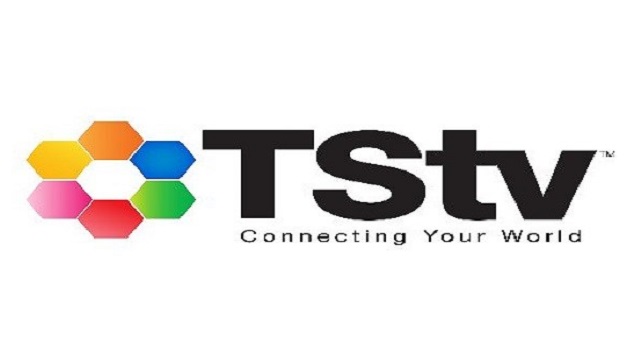Broadcasting
Cut Costs to Help Your Business

As price hikes continue to hit the economy, small business owners are fighting to keep their heads above water. Now, more than ever, it’s vital to cut unnecessary costs and examine all areas of a business to see where savings can be achieved. Overhead expenses, which take up a significant chunk of revenue, are an obvious place to start, but your most significant cost savings could come from making a series of smaller cuts and implementing innovative solutions.

1. Go paperless
The cost of paper and ink may seem insignificant, but it can add up to a big business expense over the course of a year. It’s a commonly recurring business cost that you can reduce by encouraging employees to be mindful of paper wastage and to stick to the following rules: Reuse waste paper for notes instead of throwing it away; set all work computers to print double-sided by default; print documents in a smaller font, and file important documents on your computer instead of in a portable file.
2. Flexible working arrangement
The cost involved in renting an office, coupled with furnishing and other daily and monthly overheads, is such an expensive affair, especially during these tough times. To help manage these costs, you may consider adopting a flexible working style where your team can either work remotely or in a hybrid model with frequent virtual meetings to keep the human interaction going. Using co-shared working spaces is another option where you only pay for the day that you need to be in an office environment. This way, you will not have to worry about office running costs as these spaces cater to all your office needs. Some even have an unlimited supply of coffee! Lastly, move to a smaller office and have your team come on a scheduled basis. For instance, have each department come in on a specific day of the week. This way, you get to maximise the small office efficiently.
3. Reconsider traditional services
A long-term contract for cleaning can result in expensive monthly bills and may not suit your small business’s needs. A cost-efficient alternative is to hire cleaners only when you need them to come in once or twice a week with pre-vetted, trustworthy cleaners.
Doing what you can to keep staff healthy makes good financial sense, too, as sick workers can slow down productivity. With August being Nigeria’s coldest month, Awazi Angbalaga, SweepSouth’s Country Manager, suggests a weekly clean of keyboards and desk phones to stop your office from becoming a germ-filled battleground. “Our hands and the surfaces we touch are the superhighways for germs, and because we touch our phones and keyboards so often, they top the list of the dirtiest items on our desks. A cleaner can wipe down frequently-touched objects with a disinfectant on a weekly basis to keep them clean,” she advises.
4. Leverage social media advertising
Truth be told, traditional advertising is so expensive that many small businesses can’t afford it. Paid social media advertising is much cheaper and will provide a savings opportunity, but if even that is too much for you to afford right now, you can build your company’s social media following organically on Facebook, Instagram, LinkedIn, Twitter, and YouTube. It is a much slower process, but it won’t cost you anything. You will also be able to authentically express your brand’s personality and build trust with your audience. The only cost will be your time, and a firm commitment to be regularly active and proactive on the accounts you’ve created.
5. Use freelancers and contractors for non-core work
Contracting out the jobs in your company that don’t require full-time employees can help cut overhead costs. Freelancers and interns are useful for one-off projects and non-core activities, such as data entry or document processing. They’re easier to hire and cheaper to employ, as you’re not expected to provide them with costly benefits like medical aid or leave. Make sure though, that you have proper contracts in place to set expectations and mitigate risks, for both parties. Bear in mind that freelancers may not share the same loyalty and passion for your business as full-time employees, so it makes for sound business practice to balance your staff complement by hiring a combination of both full-time employees and freelancers.
6. Switch off lights, machines and computers after hours
To help keep energy costs under control, make it a company policy to switch off air-conditioners, non-essentials lights, gadgets and equipment before staff head off home each day. Putting computer monitors into sleep mode will also cut down on unnecessary energy consumption and save money. If you run your business from a home office, make the switch to LED bulbs and opt for energy-efficient appliances to help reduce your monthly electricity costs. For a longer-term solution, consider a hybrid solar system that includes batteries for backup, while keeping a lifeline connection to the grid. This will make it possible to use essential appliances, such as a laptop and routers, in case of a power outage ; with minimal disruption to your business.
7. When in doubt, go without
If you’re struggling to allay costs, make it a practice to constantly ask: Do we really need to buy this? Do we really need to replace something? Think every purchase through instead of just spending the money on buying bigger and newer things. Even when times aren’t tough, it’s prudent to use what you already have until you are certain you need something new.
Cutting costs shouldn’t just be a periodic exercise to improve your bottom line. Good business practice dictates that you should regularly evaluate all operational expenditure. This will assist you in growing your bottom line and reducing the risk of cash-flow trouble in the future, as well as helping you become a more efficient business overall.
Broadcasting
A Billion-Dollar Obsession in 90-Second Bites

About ₦2 billion changes hands in bets every day (KPMG Gaming Outlook 2025), driven by a 60-million-strong punter base that treats wagering as both entertainment and side-hustle. Industry revenue is on pace to hit US $3.63 billion in gross gaming revenue (GGR) by December 2025 – roughly the size of Nigeria’s entire recorded-music market.
Smartphones rule this universe: more than 90 percent of slips now start and finish on a handset, which is why the market leaders obsess over data-lite apps and USSD deposits almost as much as odds feeds.
Our Litmus Test for “Best”
To separate hype from heft we graded each book on the nine variables that still matter after the banner ads fade:
- Odds edge & market depth – average margin on EPL, NPFL and niche sports
- Live tech stack – cash-out latency, in-play uptime, streaming rights
- Payout speed & reliability
- Responsible-gaming tools (RG) – time-outs, self-exclusion, deposit caps
- Licensing strength & dispute history
- Promotions that actually pay
- Product breadth – virtuals, jackpots, prediction games, casino
- Financial resilience – operating cash flow, retail footprint, VC war chest
- Cultural traction – agent networks, grassroots sponsorships, meme power
The Heavyweights – and Why Each Owns a Piece of The Best
| Operator | What They Nail | Ticking Time-Bombs | Verdict |
| SportyBet | Biggest traffic (≈ 57 M visits / month), sub-5-second cash-outs, crazy-low EPL margin (~4.5%). | Still no retail city hubs; crash loops on older Tecno devices. | Mobile kingpin |
| Bet9ja | Heritage trust, retail agents in 20 states, jackpots like Super9ja; circa ₦10 billion monthly handle. | Dated UX; odds less sharp since 2024 revamp. | Legacy war-horse |
| BetKing | Data-driven odds, Genius Sports in-play feed, renewed deal with Gamble Alert for RG training. | Slower KYC queues at peak traffic. | RG poster-child |
| Surebet247 | NLRC Permit 0001081; cash-first agent model with mobile slip tracking; boosted welcome bonus to ₦150k; full cash-out on domestic basketball. | Android app, iOS app; livestream rights still pending. | Mobile dark horse |
| 1xBet & Betway | Global market buffet, esports, crypto options. | Offshore-licence optics; occasional geoblock glitches. | International muscle |
| NairaBet, AccessBET, Msport, Premier Bet, BetPawa | NairaBet = pioneer cachet; Msport & BetPawa blitz TikTok; Premier Bet just signed Francis Ngannou. | Each misses at least one core pillar (RG tooling, market depth or fast payouts). | Specialist niches |
Two Deep-Cut Insights the Billboards Won’t Show You
- Women are quietly reshaping the market. According to University of Abuja (“according to data from the University of Abuja”), 30 percent of urban Lagos women now gamble regularly, and a 2025 field survey found daily spend often tops ₦50,000 despite lower median income.
- Mobile-money betting dents student wallets. According to Lagos State University, mobile-money deposits explain 26.7 percent of the variance in student financial well-being – a stat that should make every platform’s RG desk sweat.
So, Who Actually Wins?
- Premier-League diehards who live for lightning-fast in-play cash-out: SportyBet wears the crown.
- Corner-shop loyalists who still like to chat with a clerk: Surebet247 Betshop nails the cash-plus-mobile sweet spot.
- Jackpot chasers who want EPL on Saturday, Ugandan Super League on Tuesday, and darts on Thursday: Bet9ja is still the Swiss-Army knife.
Punters who value self-exclusion toggles and deposit caps (you should): BetKing edges ahead.
In reality, “best” is contextual. Odds hawks, live-stream junkies, crypto degenerates and agent-network stalwarts will all point to different logos. What you don’t want is a bookie that melts down at 89′ when Villarreal finally scores.
On that front, the four names above – plus a rapidly innovating Surebet247 mobile bet shop – look built to survive Nigeria’s next data-price hike and the NLRC’s tightening audit screws.
The rest? Keep one eye on their uptime dashboards – and the other on your bankroll.
Broadcasting
Nigeria Week Ahead: Inflation, Oil and Naira in focus

By Lukman Otunuga, Senior Market Analyst at FXTM.
A flurry of high-risk events may pump global financial markets with fresh volatility this week.

Top-tier data, including US Inflation, the unofficial start of earnings season, and US Congress “Crypto Week,” among other themes, could spell fresh opportunities.
Amidst this, uncertainty over global trade will add to the mix after President Donald Trump threatened 35% tariffs on the EU and Mexico over the weekend.
Regarding US inflation, this may impact bets around Fed cuts in the second half of this year. Markets are forecasting CPI to rise 2.6% from 2.4% in the prior month, with core CPI rising to 2.9% from 2.8%. Signs of rising prices may shave bets around the Fed cutting interest rates – boosting the dollar as a result.
Closer to home, Nigeria’s June CPI data due July 15 is expected to show signs of cooling inflationary pressures. This could offer some relief to the Central Bank of Nigeria (CBN) which aggressively hiked interest rates throughout 2024. Inflation is expected to have eased to 21.4% year-on-year from 23% in May – marking the 4th consecutive month of decline. However, the slowdown is largely a technical adjustment aided by the recent gains in the Naira amid higher non-oil exports and a weaker dollar.
The CBN is scheduled to meet later this month and will most likely keep rates unchanged at 27.5%.
One key challenge for the country will be how to re-tweak its budget for lower oil prices. Indeed, the budget was based around oil production at 2 million barrels and oil prices of $75. Brent is trading around $70 with the nation producing 1.544m b/d of crude in May according to OPEC. Nigeria is hoping to raise production to 1.9m b/d by the end of 2025. But its impact on the economy may be muted if oversupply and tepid demand keep oil prices subdued. Brent is up 4% this month but still down over 6% since the start of 2025.
Broadcasting
EFCC Re-Arraigns Echefu, TStv CEO for Allegedly Defrauding Ex-Minister of N1Bn, $1.3m

Bright Echefu, chief executive officer, Telecom Satellites Limited (TStv), and three co‑defendants appeared before the Federal High Court in Abuja yesterday on an amended twelve‑count indictment brought by the Economic and Financial Crimes Commission (EFCC). The charges allege money laundering, tax evasion, and investment fraud involving approximately ₦1 billion and $1.3 million.

Bright Echefu, chief executive officer, TStv
In addition to Echefu, the defendants are TStv Executive Director, Felix Igboanuga, Telecom Satellites Limited itself, and Briechberg Investment Ltd.
According to the April 5, 2025, amended charge sheet the EFCC accuses the quartet of defrauding Mr. Tanimu Turaki, Managing Director of Kalsiyam Global and former Minister of Special Duties, alongside BYI General Limited, out of a combined investment of ₦1 billion and $1.3 million. The commission has also included a ₦66 million alleged tax default.
The revised indictment lists:
Count 2: ₦33,909,542.47 in unremitted Company Income Tax
Count 3: ₦13,519,382.00 in unremitted VAT
Count 4: ₦19,488,860.00 in unremitted PAYE
Counts 5–12: Various fraud‑related transactions, including ₦380 million from Kalsiyam Farm, ₦400 million from BYI General Ltd and $1.35 million in loans secured under false pretences.
All defendants pleaded not guilty once again. At the hearing before Justice Mohammed Umar, Echefu’s lead counsel, Senior Advocate Eyitayo Fatogun, informed the court of ongoing settlement discussions with the complainants.
“There are moves to settle this matter and there was a meeting on Saturday between myself and the Nominal Complainant as it is about investment,” Fatogun stated.
“The Defendants have paid some money and I was thinking that the matter be adjourned for report of settlement.”
EFCC counsel A.S. Tomwell confirmed receipt of those payments but emphasized the necessity of entering a plea before considering any adjournment. The court thus ordered the formal reading of the charges and adjourned the trial to October 15, 2025.

 Broadcasting2 days ago
Broadcasting2 days agoNigeria Week Ahead: Inflation, Oil and Naira in focus

 News2 days ago
News2 days agoEFCC: Accusations Against Our Chairman Are Baseless and Misleading

 Telecom1 day ago
Telecom1 day agoMTN Nigeria Targets $1Bn Cloud Market with Largest Modular Data Centre

 Telecom1 day ago
Telecom1 day agoNCC Introduces N10m Licence Fee for Bulk SMS Service

 E-Business1 day ago
E-Business1 day agoFirm Highlights Top Risks of Quantum Computing

 General News1 day ago
General News1 day agoAM Best Reaffirms Stable Outlook for Cyber Insurance Market

 Telecom1 day ago
Telecom1 day agoPAT Taps Osi as CEO

 General News1 day ago
General News1 day agoBurna Boy Distances Himself from Meme Coin, Labels Crypto as Fraud



























